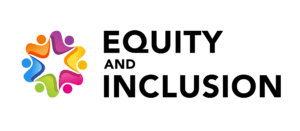 Trillium Lakelands District School Board (TLDSB) believes that, with regards to race, ethnicity and cultural identity, citizenship status, place of origin, physical and intellectual ability, marital status, family status, sex, gender identity and expression, sexual orientation, socio-economic status, religion, creed, age, and other forms of marginalization and the intersection thereof, all members of the school community deserve to work and learn in a safe and caring learning environment.
Trillium Lakelands District School Board (TLDSB) believes that, with regards to race, ethnicity and cultural identity, citizenship status, place of origin, physical and intellectual ability, marital status, family status, sex, gender identity and expression, sexual orientation, socio-economic status, religion, creed, age, and other forms of marginalization and the intersection thereof, all members of the school community deserve to work and learn in a safe and caring learning environment.
TLDSB is committed to continuing our progress towards equity and inclusion for all individuals in our system and has formed an Equity Task Force to help guide this journey. The Equity Task Force is comprised of system staff, trustees, school administrators, and student trustees who support the Board in accessing diverse perspectives and input from students, staff, and the community in order to develop strategic plans related to equity and inclusion in TLDSB. Subcommittees of the Equity Task Force are established to explore and address particular areas or concerns to move learning forward as a cohesive system.
The purpose of the Equity Task Force is to:
The work of the Equity Task Force is guided by the principles and practises mandated under the Charter of Rights & Freedoms, the Ontario Human Rights Code, the Education Act, the Ontario Safe Schools Act, the Indigenous Education Strategy, United Nations Declaration on the Rights of Indigenous Peoples Act, and the Accessibility for Ontarians with Disabilities Act.
“A positive, inclusive, equitable, and non-discriminatory elementary and secondary school experience is vitally important to a student’s personal, social, and academic development, to their future economic security, and to a realization of their full potential. Human rights principles recognize the importance of creating a climate of understanding and mutual respect for the dignity and worth of each person, so that each person can contribute fully to the development and well-being of their community. Indeed, human rights law guarantees a person’s right to equal treatment in education. It requires educators and school leaders to prevent and respond appropriately to discrimination and harassment, to create an inclusive environment, to remove barriers that limit the ability of students, and to provide accommodations, where necessary.”
– Ontario Curriculum and Resources: Human Rights, Equity, and Inclusive Education
The Student Census collects identity-based demographic information. The data collected from students (Grades 7-12) and parents/guardians (Grades K-6) will provide the school system with valuable information that will help to improve strategic planning, programming, and services with a focus on student achievement and engagement. Learn more about the TLDSB Student Census by visiting our Student Census webpage.
 Positive Space – 2SLGBTQIA+
Positive Space – 2SLGBTQIA+TLDSB promotes Positive Space as one of many opportunities for system learning under the umbrella of Ontario’s Equity and Inclusive Education strategy. There are students, staff, and parents/guardians in our school communities who identify as two-spirit, lesbian, gay, bisexual, transgender, queer, intersex, asexual plus (2SLGBTQIA+). The goal of Positive Space has always been to create and identify safer and more inclusive spaces for 2SLGBTQIA+ communities within TLDSB. Our Positive Space plaques continue to hang prominently in our schools and offices to make it clear that the 2SLGBTQIA+ community and their allies are welcomed, and feel safe, included, and respected in our Board. Visit the Positive Space page to learn more.
If you require this information in an accessible format, contact Communications Services at [email protected].
300 County Road 36, Lindsay, ON K9V 4R4
1271 Cedar Lane, Bracebridge, ON P1L 1N4
Reviews
School year calendar
School registration
Jump to a school site
Transportation info
Lindsay Education Centre
300 County Road 36, Lindsay, Ontario K9V 4R4
Muskoka Education Centre
1271 Cedar Lane, Bracebridge, Ontario P1L 1N4
Phone: 1-888-526-5552
Email: [email protected]
All school buildings will be closed to the public for the summer break beginning Monday, July 7, reopening on Tuesday, August 26.
Beginning the week of July 14, the TLDSB Lindsay Education Centre is open to the public Monday to Thursday, 8:30 a.m. to 4 p.m. The Muskoka Education Centre is closed to the public over the break.
The first day of school for both elementary and secondary students is Wednesday, September 3. Note, Kindergarten students will have a staggered start.
See more detail on the summer break 2025 information news post about available services over the summer break.